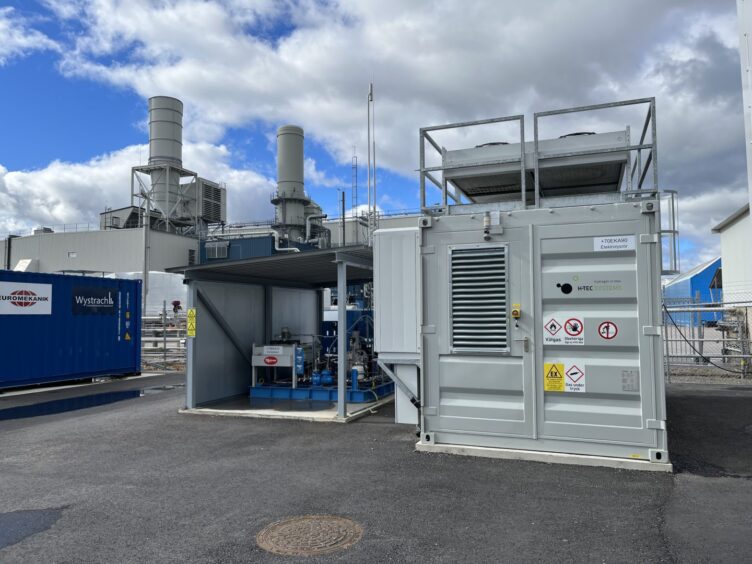
I’ve said this before and while not a Nobel Prize standard observation, it makes sense that if politicians can’t carry the people with them then they really need a rethink.
The dash for net zero in the UK seems to be proving that point.
Policies are being implemented too fast and without enough forethought and it’s leading to unwelcome political outcomes, the consequences of which could be wider and more far reaching than just undermining the effort to tackle climate change.
It’s feedstock for right-wing populism and, boy, do the right know that.
For example, despite protestations from those who, without a hint of self doubt, support the idea of electric cars, the fact is that most people don’t want one.
The figures prove it: sales growth is sluggish at less than 20% in 2024 and is highly dependent on corporate fleets making use of tax breaks, whereas private buyers – who are the ones free to make an unsubsidised choice – only represent 10% of new sales.
In other words, the majority of those able to make a free choice aren’t opting for an electric car.
I understand this because, for a lot of practical reasons, I won’t buy one either.
The idea of giving my electricity supplier the job of keeping me mobile and powering the rest of my house, which may well have to include a heat pump in the future if this government has its way, simply does not appeal.
My wife says I’m a generous bloke, but handing a privatised electricity supply company and their shareholders an energy monopoly just strikes me as far too risky and naïve.
So, I won’t support an “energy oligarchy.” Nobody should.
Then there’s the issue of politicians and the “just transition.”
Let’s be clear, shall we. There is nothing wrong with a presumption against new oil and gas developments if we don’t need them.
That’s to say if we had already found or invented, developed and were manufacturing or constructing ways of providing the energy we need to power our homes, industry and transport without having to import it, then we wouldn’t need oil and gas.
But we haven’t.
That’s assuming, of course, that we’ve also found substitutes for the feedstock for all the products we used them to manufacture, many of which we simply can’t do without.
But we haven’t done that either.
Now, over half the members of the Scottish parliament are backing a campaign to stop a ban on North Sea oil and gas losing lots of jobs.
I’m not sure if this is just craven politicking with an eye on the next Scottish elections or if they genuinely understand the issues.
Regardless, it is absolutely the right thing to do because we can’t do without oil and gas now and never will, given the UK government’s determination to continue the last-century practice of making us grid dependent, which is probably because that’s what the energy oligarchy is telling them to do.
For ordinary people i.e. the majority, this isn’t real progress.
They notice the problems with wind intermittency, reports on blackout risks and the need to pay windfarms to stop generating when the grid is overloaded and can’t handle it, and the building of huge and highly unattractive battery backup systems to ensure grid stability.
They then rightly question the strategy and turn to those who listen, and this is what’s happened in the US.
“Drill baby srill” and pulling the plug on wind (no pun intended) isn’t of course a solution – it’s a knee jerk reaction based on ignorance, but as a policy designed to appeal to voters it worked for all the reasons I’ve explained above.
To avoid that happening here the government needs to reflect carefully on its response to that 50% of MSPs and their campaign.
Oil and gas plus wind isn’t the answer.
Using gas to back up wind isn’t the right thing to do and neither would be reverting to petrol and diesel.
It needs a much more fundamental set of changes than that and, although I hate to say it because of the flak I know it will draw, it’s got to be hydrogen.
Fortunately, certain technology developments taking place in Sweden and Scotland are making hydrogen look an even better bet.
Clyde Hydrogen in Glasgow and Caplyzer in Stockholm are both working on “decoupled electrolysis” in which the hydrogen and oxygen are produced separately, and which has the advantage of not using either a membrane or rare earth materials.
According to Caplyzer, their patented and tested technology will cut the cost of an electrolyser by around 30% and will be able to produce at high pressure – Clyde have achieved 100 bar – which means no need for compressors either.
No membrane also means much less maintenance.
George Bernard Shaw said all progress was dependent upon the existence of unreasonable – or awkward – people, so I’m being as awkward as I can because the path we’re on now is unsustainable.
There are methods being developed of reaching net zero that everyone can live with, but it means a genuine change in mindset.
Let’s have that and keep the people on board, and US-style political developments at bay… please.
Recommended for you
